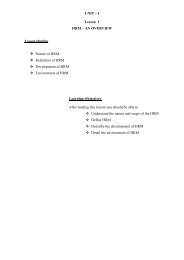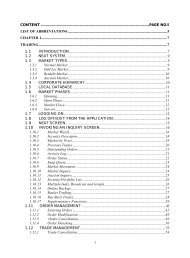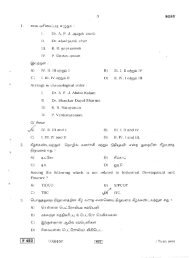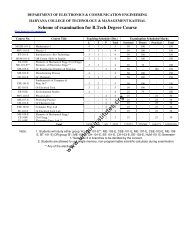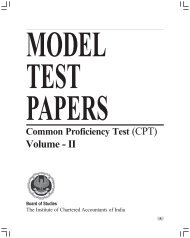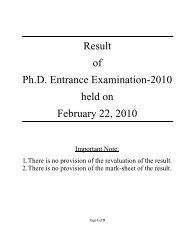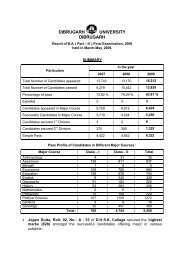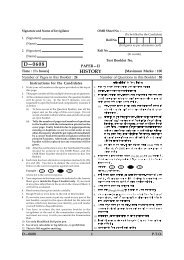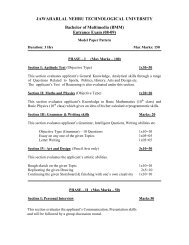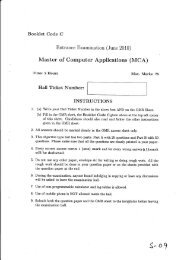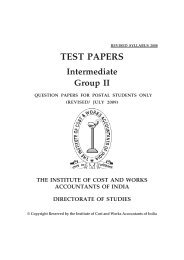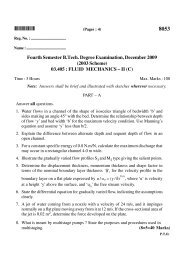Document file:///D|/Export1/www.netlibrary.com/nlreader/nlreader.dll ...
Document file:///D|/Export1/www.netlibrary.com/nlreader/nlreader.dll ...
Document file:///D|/Export1/www.netlibrary.com/nlreader/nlreader.dll ...
You also want an ePaper? Increase the reach of your titles
YUMPU automatically turns print PDFs into web optimized ePapers that Google loves.
<strong>Document</strong><br />
The Big Push<br />
Page 8<br />
A good place to start our discussion is with the paper that really began the golden age of development<br />
economics: Paul Rosenstein-Rodan's "Problems of Industrialization of Eastern and South-Eastern<br />
Europe." It is a quite straightforward paper, yet it has inspired astonishingly many interpretations. Some<br />
economists read it as essentially Keynesian, a story about interactions between the multiplier and the<br />
accelerator. Rosenstein-Rodan himself seems to have had a more or less Keynesian idea about effective<br />
demand in mind, with (as we will see) considerable justification. Other economists saw it as an<br />
assertion that growth must be somehow "balanced" in order to be successful indeed, Albert Hirschman<br />
cast his celebrated The Strategy of Economic Development as a refutation of Rosenstein-Rodan and<br />
others of the balanced growth school, which I will argue was both a misunderstanding and selfdestructive.<br />
Yet other economists tried to generate low-level equilibrium traps by invoking such<br />
mechanisms as interactions among in<strong>com</strong>e, savings, and population growth (e.g., Leibenstein 1957,<br />
Nelson 1956); such mechanisms can also justify a Big Push, but they are very far from the spirit of the<br />
original story.<br />
In the late 1980s, however, Murphy, Shleifer, and Vishny (1989) offered a formalization of the Big<br />
Push that is quite close to the original spirit, and that is also quite revealing about the essential aspects<br />
of high development theory. Let me offer a slightly streamlined presentation of their model, and then<br />
ask what it tells us.<br />
Imagine, then, an economy that is closed to international trade. (This sounds archaic and way off the<br />
point in our current age of export-led economic miracles, and perhaps<br />
<strong>file</strong>:///<strong>D|</strong>/<strong>Export1</strong>/<strong>www</strong>.<strong>netlibrary</strong>.<strong>com</strong>/<strong>nlreader</strong>/<strong>nlreader</strong>.<strong>dll</strong>@bookid=409&<strong>file</strong>name=page_8.html [4/18/2007 10:28:42 AM]



